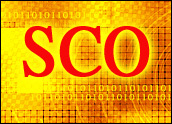
A 2002 e-mail claims a SCO Group investigation failed to uncover any evidence that Linux contained copyrighted Unix code.
Groklaw last week posted an e-mail dated August 2002 penned by SCO Group engineer Michael Davidson. The message allegedly made its way to one of the company’s senior vice presidents and then on to SCO Group CEO Darl McBride.
SCO filed a US$1 billion suit against IBM in 2003, alleging that Big Blue infringed on its proprietary Unix code. SCO’s multibillion-dollar Unix patent lawsuits also include Novell, AutoZone and Daimler Chrysler.
Consultant Hired
Davidson’s e-mail said, “The project was a result of SCO’s executive management refusing to believe that it was possible for Linux and much of the GNU software to have come into existence without someone somewhere having copied pieces of proprietary UNIX source code.”
“The hope was that we would find a ‘smoking gun’ somwhere (sic) in code that was being used by Red Hat and/or the other Linux companies that would give us some leverage.”
The e-mail did not disclose details of the investigation; however, Davidson did note that it was conducted by Bob Swartz, a consultant SCO hired.
“An outside consultant was brought in because I had already voiced the opinion (based on very detailed knowledge of our own source code and reasonably broad exposure to Linux and other open-source projects) that it was a waste of time and we were not going to find anything,” he wrote in the e-mail.
Studying Kernel
Davidson’s e-mail continues, noting that Swartz spent four to six months examining the Linux kernel, along with a large number of libraries and utilities in order to compare them to various versions of AT&T’s Unix source code.
Swartz discovered there was some code that was identical to Unix and other code. He also noted that the code appeared to be rewritten in a possible attempt to disguise the plagiarism. Swartz described the identical code as “fragments” rather than an entire program.
“The fact, however, that there are pieces of code which are identical to those in the Unix source and others which appear to be simply a rewriting of Unix code is clearly disturbing,” Swartz wrote in his e-mail.
Problems with Linux
“This memo shows that Mr. Davidson’s e-mail is referring to an investigation limited to literal copying, which is not the standard for copyright violations, and which can be avoided by deliberate obfuscation, as the memo itself points out,” said a statement SCO released yesterday.
“Even more importantly, this memo shows that there are problems with Linux. It also notes that additional investigation is required to locate all of the problems, which SCO has been continuing in discovery in the IBM and AutoZone cases,” the statement continued.
“Thus, even aside from the fact that SCO’s central contract claims in the IBM litigation involve later Linux versions and different conduct, it would simply be inaccurate — and misleading — to use Mr. Davidson’s e-mail to suggest that SCO’s internal investigation revealed no problems.”
Proof’s What Counts
Stacey Quandt, senior business analyst and Open Source Practice leader at theRobert Frances Group, told LinuxInsider that the situation has little to do with e-mails. It’s about proof: That’s what convinces a judge, she said.
“Regardless of SCO’s latest statement, nothing is proven until a judge rules in this case,” Quandt said. “SCO has a history. They threatened, then sued their own customers. Part of this case is about whether there was real copying that went on. That still remains to be proven.”
The case is scheduled to go to trial in early 2007.



















































